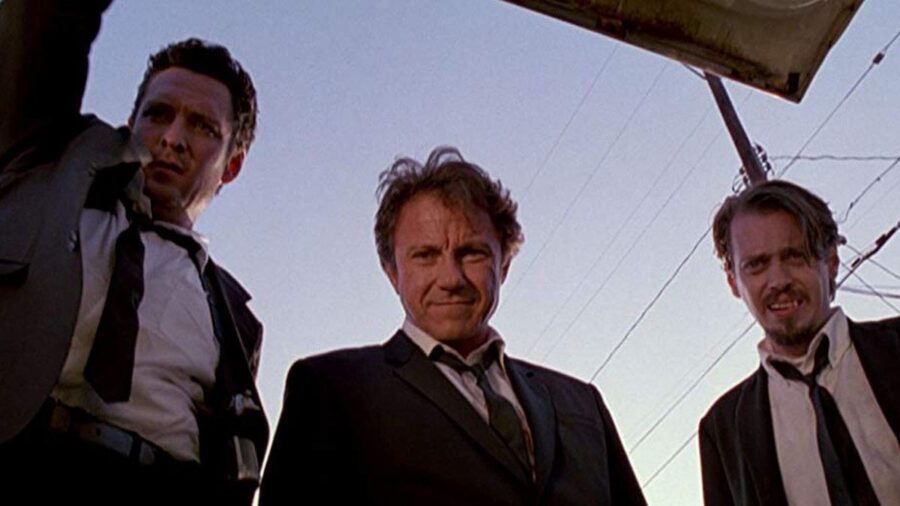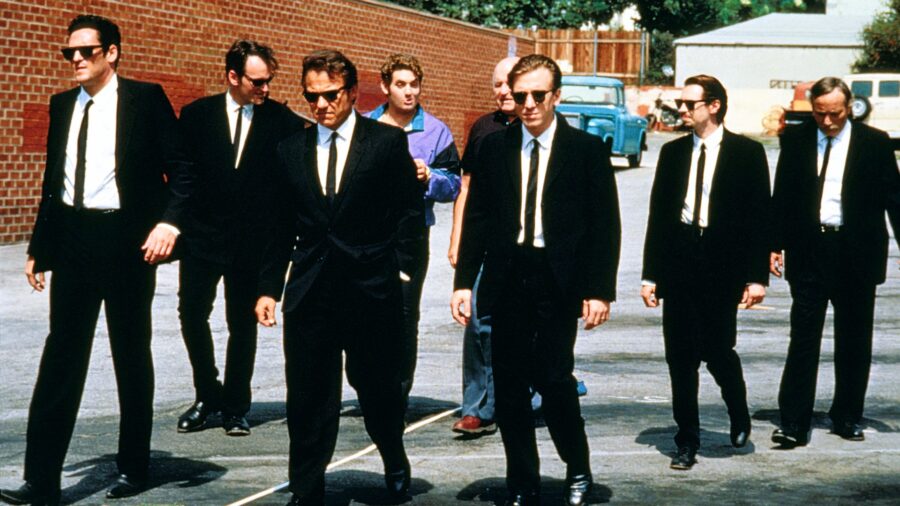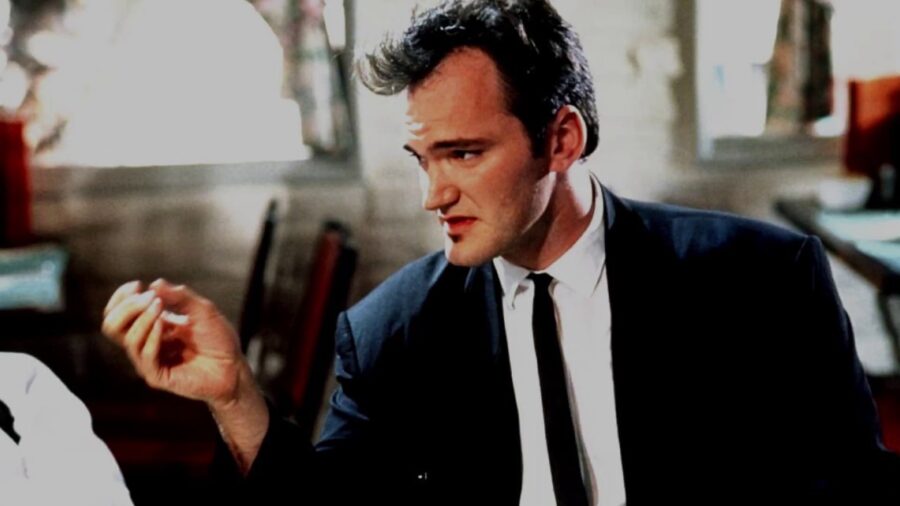The Crime Thriller On Netflix That Changed Movies Forever

If you had to list the top five directors of the modern era, it’s possible you’d think of Steven Speilberg, Martin Scorsese, The Coen Brothers (we’ll count them as one), Greta Gerwig, and, of course, Quentin Tarantino. All of these auteurs have made their mark on the cinematic landscape over the course of their careers, but none have changed movies in the same way as Tarantino’s feature-film debut, Reservoir Dogs. This classic masterpiece that follows the aftermath of a jewelry heist gone horribly wrong is currently streaming on Netflix.
A veritable tour de force in storytelling, character development, and visual flair, Reservoir Dogs marked Tarantino’s audacious feature-length writing and directorial debut and laid the foundation for his illustrious career.
Reservoir Dogs, now available on Netflix, redefined movies with its snappy dialogue, non-linear storytelling, and approach to violence.
The initial plan was for Reservoir Dogs to be a tiny budget independent film made on a 16mm black-and-white film camera on a budget of $30K. Luckily for Tarantino, fate had other plans, and the film’s producer, Lawrence Bender, was able to sign Harvey Keitel on as both a co-producer and an actor portraying the role of Mr. White. The film ended up securing a much more decent budget of $1.5 million.
The extra funds changed the game for both Reservoir Dogs and the actors involved. This financial backing allowed them to host casting sessions in New York, leading to the discovery of talents like Steve Buscemi, Michael Madsen, and Tim Roth.

Reservoir Dogs is a film deeply rooted in homage and inspiration. The movie pays homage to classics like Stanley Kubrick’s The Killing and Joseph H. Lewis’s The Big Combo. The decision to name characters after colors was inspired by The Taking of Pelham One Two Three. Even Tarantino’s trademark of nonlinear storytelling can be attributed to the influence of Akira Kurosawa’s Rashomon.
Reservoir Dogs, like all of Tarantino’s work, is renowned for its distinctive narrative structure. Tarantino’s decision not to depict the diamond heist was deliberate — though partially driven by budget constraints — as it allowed the film to focus on character development and interactions rather than the heist itself. It’s a storytelling technique that Tarantino likened to a novelist’s approach, emphasizing what is not seen and playing with the passage of real-time within the film.
Reservoir Dogs was heavily influenced by the Taking of Pelham One Two Three and Akira Kurosawa’s twisting film, Rashomon.
The film premiered at the Sundance Film Festival in January 1992, where it became the talk of the town. Miramax Films acquired the Reservoir Dogs distribution rights, and the movie went on to make waves at other festivals, including Cannes, Sitges, and Toronto.
When Reservoir Dogs opened in the United States on October 9, 1992, it initially played in just 19 theaters, grossing $147,839 in its first week. However, word of mouth and critical acclaim propelled it to a total domestic box office gross of $2,832,029.
Reservoir Dogs was met with immediate critical acclaim upon release, solidifying its status as an independent cinema milestone. Review aggregator Rotten Tomatoes boasts a 90 percent approval rating, with Empire magazine later naming it the “Greatest Independent Film” ever made.

However, the film was not without controversy. Reservoir Dogs’ unflinching violence and profanity ruffled feathers, leading some viewers to walk out during screenings. The infamous ear-cutting scene, in particular, has been considered one of the most traumatic movie scenes of all time by audiences and critics alike.
Reservoir Dogs catapulted Quentin Tarantino to fame and set the stage for his subsequent groundbreaking work, including Pulp Fiction and Kill Bill. Over the years, Reservoir Dogs has continued to create a legacy, garnering fame as both Tarantino’s first feature movie and spurring enduring standalone conversation about the film itself. It has been dissected for its themes, treatment of violence, and complex characters, though still managing to captivate an audience decades after its release.
Reservoir Dogs is a cinematic masterpiece, but when it was first released in 1992, only 19 theaters were playing it.
In addition to continued debates and discussion amongst cinephiles, the film has developed a cross-media legacy. A video game adaptation was released in 2006, though none of the characters in the game reflect the likeness of any of the actors besides Michael Madsen. In 2002, a Bollywood film called Kaante was released that borrowed significant plot points from Reservoir Dogs, as well as City on Fire, Heat, and The Killing.
Today, Reservoir Dogs remains a cinematic masterpiece that defies categorization. Its blend of tension, dark humor, and unforgettable characters has left an unforgettable mark on film history. Quentin Tarantino’s audacious debut set a high bar for independent cinema, and its legacy continues to influence filmmakers and captivate audiences around the world. It is, without a doubt, a timeless classic that will forever be celebrated in cinematic history.












